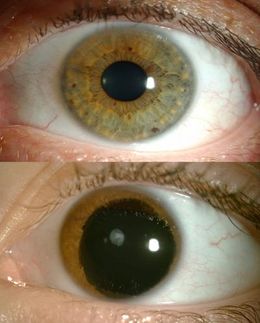Prosensa Announces Progress on Exon Skipping Compounds for the Treatment of Duchenne Muscular Dystrophy
£10m in milestone payments received from GlaxoSmithKline
Prosensa has selected clinical candidates for two more compounds for the treatment of Duchenne muscular dystrophy (DMD) and has been granted Orphan Drug Designation for two additional DMD compounds in its pipeline.
Prosensa identified suitable oligonucleotide candidates for PRO052 and PRO055, designed for the skipping of exons 52 and 55 of the dystrophin gene. PRO052 and PRO055 are currently in pre-clinical development and will be moved to clinical trials as soon as possible.
Prosensa has also received orphan drug designation by the European Commission for PRO045 and PRO053. These compounds are designed to skip exons 45 and 53 of the dystrophin gene and are expected to enter clinical development within the next 6 months. In parallel, Prosensa and GSK have initiated a large global natural history study in order to generate important data on the progress of DMD that will help to facilitate the development pathways for these compounds.
Together with drisapersen (PRO051/GSK2402968) and PRO044, already in clinical development, the Prosensa portfolio of six DMD compounds has the potential to treat more than 40% of all DMD patients.
Hans Schikan, CEO of Prosensa, commented: “Achieving orphan drug status for PRO045 and PRO053 is an important milestone that we believe will allow us to accelerate development of these compounds and initiate clinical trials within the next half year. While GSK has an option to license one compound, PRO045 or PRO053, the other compound will be developed and eventually commercialized by Prosensa in our ambition to become a fully integrated biopharmaceutical player in rare diseases. Together with PRO052 and PRO055, where the same principle applies, Prosensa will be in a position to target rare mutations in specific DMD subpopulations and may provide treatment to more patients with this debilitating disease.”
Other news from the department research and development

Get the life science industry in your inbox
By submitting this form you agree that LUMITOS AG will send you the newsletter(s) selected above by email. Your data will not be passed on to third parties. Your data will be stored and processed in accordance with our data protection regulations. LUMITOS may contact you by email for the purpose of advertising or market and opinion surveys. You can revoke your consent at any time without giving reasons to LUMITOS AG, Ernst-Augustin-Str. 2, 12489 Berlin, Germany or by e-mail at revoke@lumitos.com with effect for the future. In addition, each email contains a link to unsubscribe from the corresponding newsletter.





















































